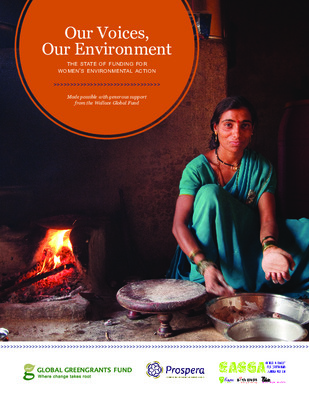Which category below best describes the type of organisation you currently work for/or run?
Areas of expertise
Would you be willing to be approached and share your lessons learned in your area(s) of expertise with our community?
Influencer Of
Nervours Daka
Donor Relations Specialist, AFRICAN HEALTH VOLUNTEERS FOR EMERGENCY RESPONSE RESCUE AND REFERRALS PARTNERSHIPS
Suhail Bashir
Environmental Consultant, WildHub Community Advocate, ENS Environmnetal Consultancy Sharjah

Recent Comments
Hi Eva. Thanks for your great work. In addition to seed-funds, how else does your organization or can any organization support women-led conservation? What else do your reciepents indicate they need to be successful?
Thank you. -K Curran (Pew Charitable Trusts)
Hi K,
Sorry we didn't get to your great question during the panel.
As you can imagine, there are lot of very context specific responses to your question, but very generally speaking, we found that the first step is to be mindful of the different ways that women and men are experiencing environmental degradation/biodiversity loss and consequently how they are devising conservation solutions. Too often still we don't have a full gender-aggregated picture of impacts, so research and analysis into gender-differentiated impacts and responses is another key need in addition to funding.
Applying a gender lens then permeates all stages of interventions - down to when activities are scheduled to take place. Are they happening when women are needed elsewhere due to child care or other caring responsibilities? Are there women-only spaces, especially important in strict patriarchal communities?
The last thing I would mention here is that the transfer of money is also a transfer of power - when women are given decision-making power over the use of funds, we often see increased confidence, greater trust from the community in the women, and consequently greater involvement in wider decision-making. So even if it is just a small grant, the gesture of an outsider trusting and investing in the women's solutions can have incredible ripple effects. This is the sweet spot where we advance gender equality and conservation aims!
Let me know if you'd ever like a deeper chat on this, and thanks for your question! Eva
Hi all,
Here are the two reports I reference on gender and environment:
Our Voices, Our Environment - The State of Funding for Women's Environmental Action, by Global Greengrants Fund and Prospera International Network of Women's Funds
Climate Justice and Women's Rights - A Guide to Supporting Grassroots Women's Action by Global Greengrants Fund
Eva
Hi Eva, the current reality of often siloed approaches and the need for context-relevant strategies really resonated with me. Thank you very much for sharing these reflections with us; it’s a perfect piece to open the dialogue between funders and practitioners within our WildHub community.
Thank you for the opportunity to share, Thirza!
Thanks very much for your insights - I had not really thought of differentiating impact/beneficiaries based on gender before. We do collect data on who we train - and looking at the numbers I notice that women conservationists make up 68% of the people we train. We don't have targets for this but perhaps we should?
Hi Adam,
That's really interesting. I would encourage you to look at that more - what are these women conservationists working on, how do their approaches differ from their male counterparts, and consequently do they have different training needs? This could even be when are they available for training, does it differ from the men because of their other responsibilities? Once you start looking through the gender lens it's hard not to notice differences. Let us know how this develops for you!